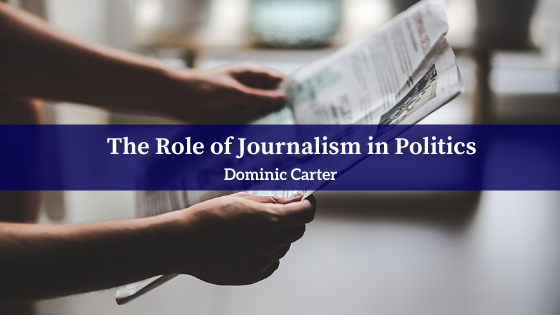For most individuals, the realm of politics is largely unknown; it is one thing to comprehend a bulleted list of a candidate’s promises and another thing entirely to understand the inner workings of the government on a day-to-day basis. Even outside the current political climate, journalism plays an essential role in sharing information, offering new perspectives, and shedding light on that which might otherwise get swept under the rug. Political journalism is critical when it comes to informing the public and promoting critical thought about politics.
Complex Ideas Made Digestible
Without extensive education, many individuals find politics to be difficult to understand or even dull. It is the responsibility of a journalist to not only understand what is happening but to also be able to transform that information into something that anyone can comprehend. This practice is made even more engaging and accessible through social media; confined by character limits or attention spans, journalists are challenged to craft meaningful updates that are informative, factual, and brief for the sake of communicating ideas to their audiences.
Facts and Truth
Contemporary journalism has been the subject of heightened criticism; differences in morals, premature reports, and claims of false information have contributed to this phenomenon. Much like the “publish or perish” standard has harmed the scientific and medical community by encouraging limited review and immediate publication, the demand for near-constant updates and hyper-timely reports have damaged the reputation of some media outlets.
However, journalists who operate in the political field are generally geared toward finding the facts of the story. Even amidst harmful claims about the mainstream media, political journalism still strives to uphold core values of integrity and truth in their work. It is their role and responsibility to uncover what is true and what is false and spin that information into a story for their readers. In politics, it can be challenging to know what politicians stand for, what work they’ve done to support their current ideas, and what is happening behind the scenes. Even with pressure to act quickly, journalists continually aim to do their due diligence when researching and writing a piece in order to present the most accurate information possible.
Journalism has always served to inform and educate the public, and this has not changed within the realm of political journalism. Because it can be difficult for individuals without a political background to fully grasp the intricacies of politics, journalists serve as a courier of mass amounts of complex information by fact-checking their work and making their work accessible.
